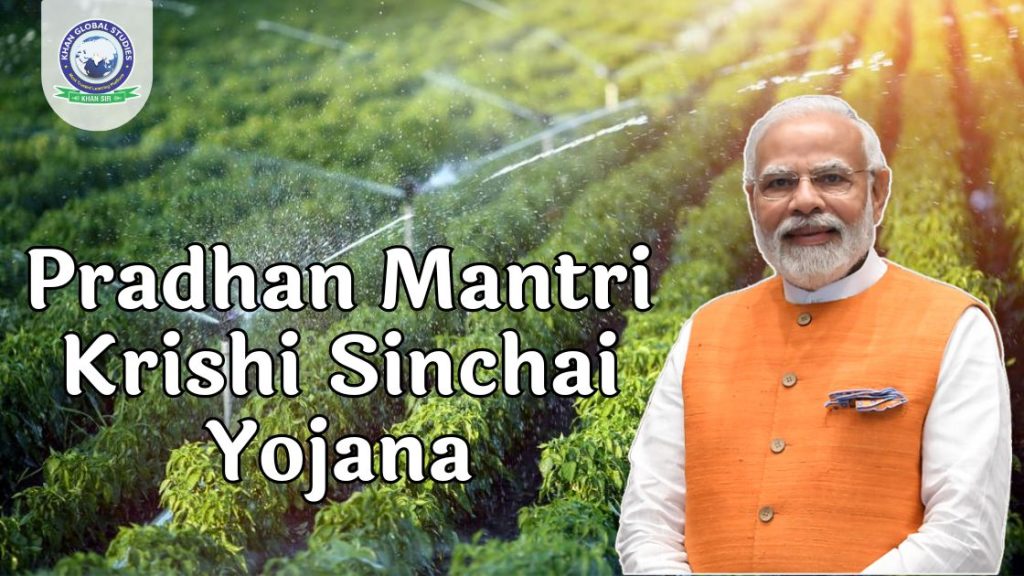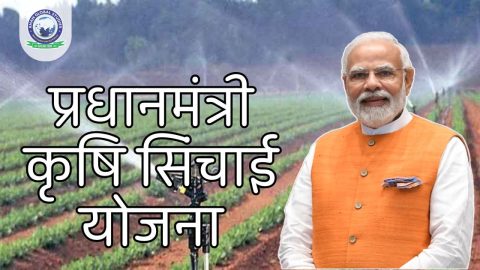India is an agricultural country, where agriculture is not only the primary source of livelihood for millions of people but also ensures the food security of the country. However, the increasing water scarcity due to climate change and growing population is a major challenge for the sustainability of the sector. To address this issue, the Government of India launched the Pradhan Mantri Krishi Sinchai Yojana (PMKSY) with a significant focus on microirrigation.
What is Microirrigation?
Microirrigation comprises a group of water-saving irrigation techniques that deliver water directly to the roots of plants. These techniques, including drip irrigation, sprinkler irrigation, and subsurface irrigation, can save 40-70% of water compared to traditional flood irrigation methods. Additionally, microirrigation can increase crop productivity. Experts recommend using drip systems for irrigating vegetables and chilli crops, while sprinkler systems are more suitable for irrigating chickpeas and wheat.
PMKSY and Micro Irrigation
The objective of PMKSY is to achieve the dual goals of “Har Khet Ko Pani” (irrigation for every farm) and “Per Drop More Crop” (increased productivity per drop of water). Under this scheme, the government provides subsidies to farmers for installing micro irrigation systems. In addition, the government is working on creating awareness and training farmers on microirrigation techniques.
Benefits of PMKSY
- Water Conservation: Micro irrigation is an effective water-saving technique, which is important for a water-scarce country like India.
- Increased Crop Productivity: Micro irrigation can increase crop productivity, thereby increasing farmers’ income.
- Reduced Soil Erosion: Microirrigation reduces soil erosion, which is essential for maintaining soil fertility.
- Low Energy Consumption: Micro irrigation systems require less energy than conventional irrigation methods.
- Employment Generation: Installation and maintenance of micro irrigation systems create employment opportunities.
Application Process
Pradhan Mantri Krishi Sinchai Yojana (PMKSY) focuses on state-level implementation, and the application process usually involves these steps:
1. Check Eligibility:
- Individual farmers, groups of farmers, self-help groups (SHGs) and farmer producer organisations (FPOs) can apply for this scheme.
- Land ownership or lease agreements are usually required.
2. Identify the Implementing Agency:
- The nodal agency for PMKSY varies by state. It may be the agriculture department, horticulture department or a designated nodal agency.
- Visit the official website of your state’s agriculture department to get details about the implementing agency and contact information.
3. Application Process:
The application process may involve filling out a physical form obtained from the implementing agency or applying online through a state-specific portal (if available).
The required documents generally include:
- Application form
- Identity proof (Aadhaar card, voter ID card)
- Land ownership documents (Jamabandi/land records)
- Bank account statements
- Project proposal outlining the type and size of the planned micro irrigation system
4. Approval and Subsidy:
- The implementing agency will review the applications and approve eligible projects.
- The subsidy amount for micro irrigation systems varies depending on the state, type of system, and category of applicant (individual farmer, group, etc.).
5. System Installation and Verification:
- After approval, farmers can purchase micro-irrigation systems from authorized vendors.
- The implementing agency may have a list of approved vendors.
- After installation, a verification process may be conducted by the agency to ensure proper system setup.
Challenges and Solutions
Despite its positive impact, there are some challenges in adopting micro irrigation under PMKSY:
- Limited awareness among farmers: Many farmers are still unaware of the benefits of microirrigation techniques.
- Initial investment: Despite government subsidies, initial capital investment may be a barrier for some farmers.
- Infrastructure constraints: Limited access to irrigation sources and power supply may pose challenges in some areas.
- Technical support: Farmers need technical support for the maintenance and repair of micro irrigation systems.
To address these challenges, the following measures can be taken by the government and other stakeholders:
- Awareness Campaigns: Extensive awareness campaigns should be conducted to educate farmers about the benefits of micro irrigation.
- Financial Support: Subsidy schemes should be streamlined to reach more farmers.
- Infrastructure Development: Investments should be made to improve access to irrigation sources and power supply.
- Empowering Farmer Producer Organisations (FPOs): FPOs can assist farmers in collectively procuring and maintaining irrigation systems.
- Skill Development Programmes: Skill development programmes should be organised to train farmers in the operation and maintenance of micro irrigation systems.
Success Stories
PM Krishi Sinchai Yojana has seen several success stories. Many farmers have reported water savings and increased crop productivity after adopting microirrigation systems. Sharing these success stories can encourage other farmers to adopt microirrigation.
Moving Forward: Adopting Technology and Social Change
PMKSY is undoubtedly a commendable initiative. However, to further enhance its effectiveness in the future, additional steps may be considered:
- Technological Integration: Advanced technologies such as drone-based irrigation and sensor technology can be adopted to promote innovation in the agriculture sector. This will enable real-time monitoring of fields and optimize water use.
- Digital Platform: A robust digital platform may be developed to provide information and advisory services to farmers. This platform can provide critical information such as weather forecasts, market trends and direct advice from agricultural experts.
- Private Sector Participation: The private sector can be encouraged to participate in the manufacturing, distribution and installation of micro irrigation systems. This will increase competition and reduce costs.
- Climate Change Adaptation: Promoting drought-resistant crops and adopting irrigation practices to climatic conditions can be encouraged.
Social Change
PMKSY must rise above the status of a mere government scheme and evolve into a social movement. This can be achieved in the following ways:
- Educating Students: Students can be educated about the importance of water conservation and micro irrigation at the school level.
- Encouraging NGOs: NGOs can be encouraged to conduct water management awareness programmes and provide support to farmers.
- Media engagement: Media can play an active role in disseminating the message of water conservation and sharing success stories.
Conclusion
Micro irrigation under Pradhan Mantri Krishi Sinchai Yojana has immense potential to revolutionise India’s agriculture sector. By empowering farmers to save water, enhance productivity and increase their incomes, can significantly contribute to the country’s food security and environmental sustainability. Coordinated efforts by the government, private sector, farmer organisations and civil society are necessary to overcome the existing challenges and adopt the progress for the successful implementation of the scheme. By working collaboratively, PMKSY can usher in a new era for Indian agriculture, ensuring a brighter future for farmers and a more sustainable food system for the nation.
Additional Information:
- Official website of PMKSY: https://pmksy.gov.in/
- More information about Micro Irrigation: https://services.india.gov.in/service/ministry_services?ln=hi&cmd_id=11





